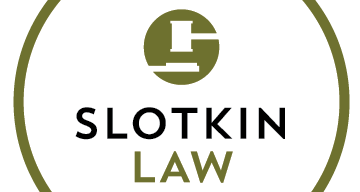HB 1059 Gives Guidance On Compensation for Value-Added Services
Can independent insurance agents in Georgia be compensated for value-added services? The answer to that question has long been a topic of keen interest. House Bill 1059, titled “Insurance; Unfair Trade Practices and Unlawful Inducements; Provide for Exclusions,” provides some much-needed clarity and excludes certain actions of insurers or insurance agents from being considered unfair trade practices or unlawful inducements. HB 1059 was signed into law by Governor Kemp on May 2, 2022 and became law on July 1, 2022.[1] The law applies to all “policies or contracts issued, delivered, issued for delivery, or renewed in this state on or after such date.”[2] No policy issued or renewed on or before June 30, 2022 is covered by this law.
This new law allows insurance agents to provide, at no cost or for a reasonable fee, value-added products or services to clients outside of the rate filing process, so long as the value-added products or services meet certain requirements. It provides a safe harbor protecting insurance professionals from claims for unfair trade practices and unlawful inducements.
In order to charge a fee for a value-added product or service, the product or service cannot be one specified in the policy of insurance.[3] In other words, you cannot charge a fee for a product or service to which the insured is entitled under the policy. Additionally, the value-added product or service must: relate to the insurance coverage; be offered in a way that is not discriminatory; be based upon documented, objective criteria maintained by the insurance provider and produced upon request. The cost must be reasonable in comparison to the policy premiums or insurance coverage for the policy class.[4] Additionally, the value-added product or service must be primarily designed to: provide loss mitigation, reduce claims costs, provide education about loss mitigation or risk mitigation; monitor or asses risk, identify risk, strategize to eliminate risk; provide post-loss services; or encourage behavioral changes to reduce the risk of death or disability of a customer or potential customer.[5]
What is a value-added product? Personal lines carriers may view this law as providing a safe harbor for supplying clients loss mitigation devices like water leak detectors, smoke detectors, or driver telematics devices. While agents would be able to provide these devices as well under the new law, the costs are such that carriers likely will seek to make their coverages more competitive by offering such value-added products.
On commercial lines policies with complex risks, the new law’s proviso that cost of the value-added product or service “must be reasonable in comparison to the policy premiums or insurance coverage for the policy class” clarifies that agents can provide valuable risk mitigation products or services to their clients without risk of violating the anti-rebating statute. This is important, as, agents may have been unwittingly violating the law in the past by providing risk management services, paying for driver training courses and the like. These services now may fall within the safe harbor.
What does this mean for you?
The intent of the new law is to enable Georgia insurance professionals to provide clients with more services and products, without risking those extra efforts being construed as unfair trade practices or unlawful inducement. Although the law could be clearer that agents can charge for those services, that seems to be stated elliptically, or at least implied. To interpret it otherwise may ignore the principle that a “the laborer is worthy of his hire.” This calls to mind a colloquy between Clarence Oddbody and George Bailey in It’s a Wonderful Life. In response to Clarence’s admonition that “we don’t use money in Heaven”, George retorts, “Comes in pretty handy down here, bub!”
The safe harbor is a valuable protection. A violation of the Unfair Trade Practices Act gives rise to a civil cause of action for damages ranging from damages for breach of the insuring agreement, to damages for bad faith and attorney fees.[6] Additionally, a violation may give rise to punitive or exemplary damages if misconduct is found to be intentional.[7] Failure to comply with the unlawful inducement statute can result in a fine of up to $5,000.00 and a misdemeanor if the violation is intentional.[8] House Bill 1059, now O.C.G.A. § 33-24-59.31, gives agents more freedom to provide risk management or loss mitigation services to their clients without violating the anti-inducement statute.
Finally, the new law provides that, if an insurance professional believes in good faith that the value-added products or services meet the criteria described above, but is not certain, the insurance professional can notify the Insurance Commissioner of their intent to implement a pilot program offering a value-added product or service. The Commissioner must object in writing within 21 days of notice.[9] Though the law is silent on what it means if the Commissioner does not object, the logical conclusion is that the Commissioner ‘s non-response creates an additional safe harbor for up to a year. This provision, though apparently meant to be helpful, leaves insurance professionals to ponder whether it is better to ask for forgiveness or permission.
This article is not intended to provide “legal advice” on the issues discussed in it and does not create an attorney-client relationship. It is only for informational purposes. Please contact Slotkin Law Firm or another attorney who is knowledgeable in this area of the law about your specific situation before taking any action.
[1] Georgia House Bill 1059.
[2] Georgia House Bill 1059, Section 3; O.C.G.A § 33-24-59.31.
[3] O.C.G.A. § 33-24-59.31(1)
[4] O.C.G.A. § 33-24-59.31(1)(A)-(C).
[5] O.C.G.A. § 33-24-59.31(D)(i)-(vi).
[6] O.C.G.A. § 33-6-4(b)(8)(B)
[7] Id.
[8] O.C.G.A. § 33-9-38.
[9] O.C.G.A § 33-24-59.31(2).
